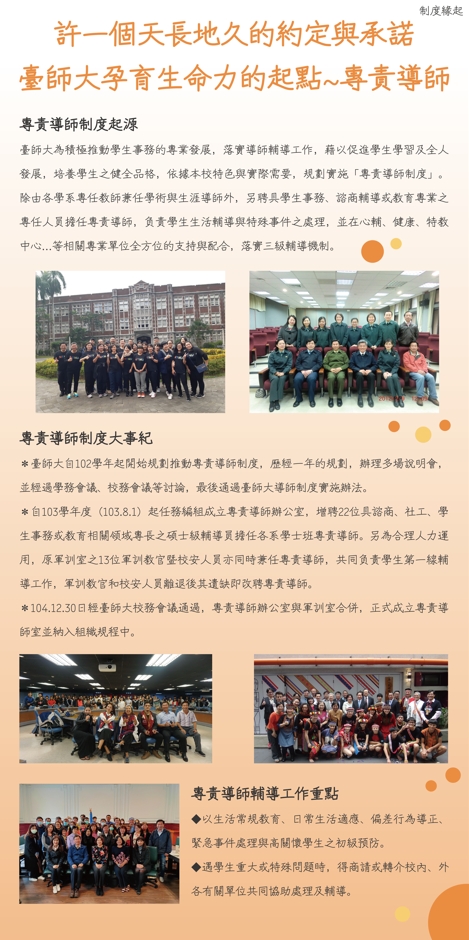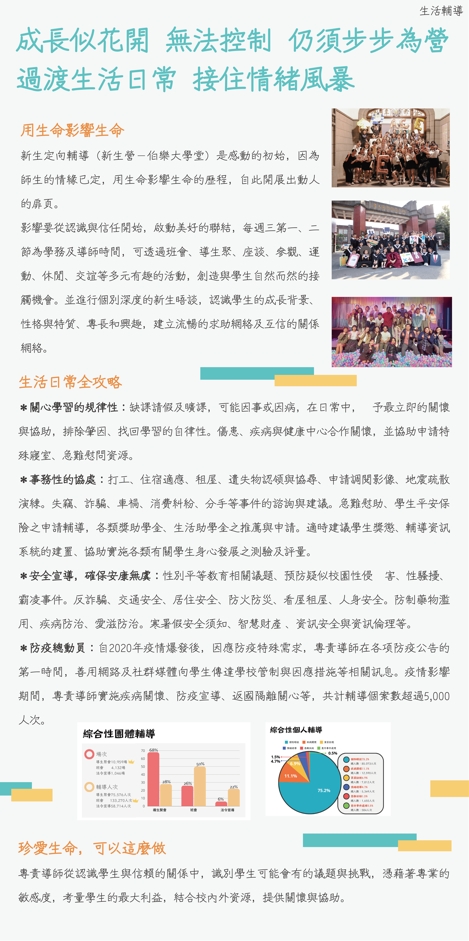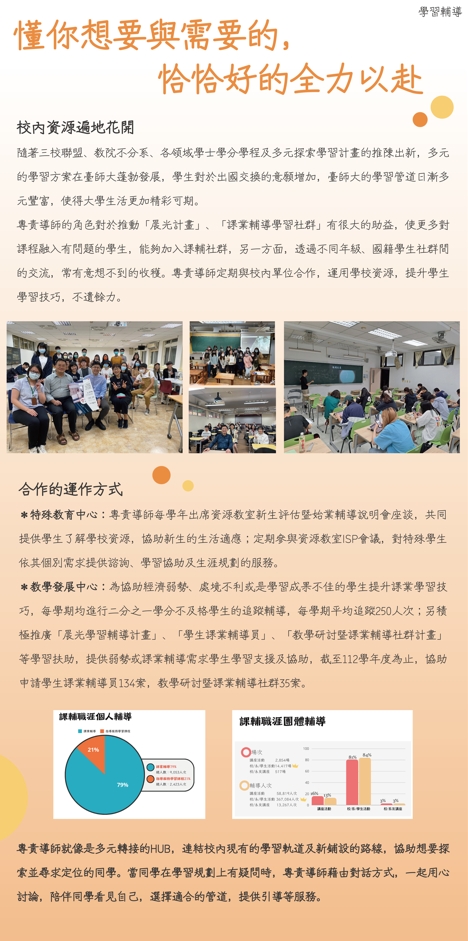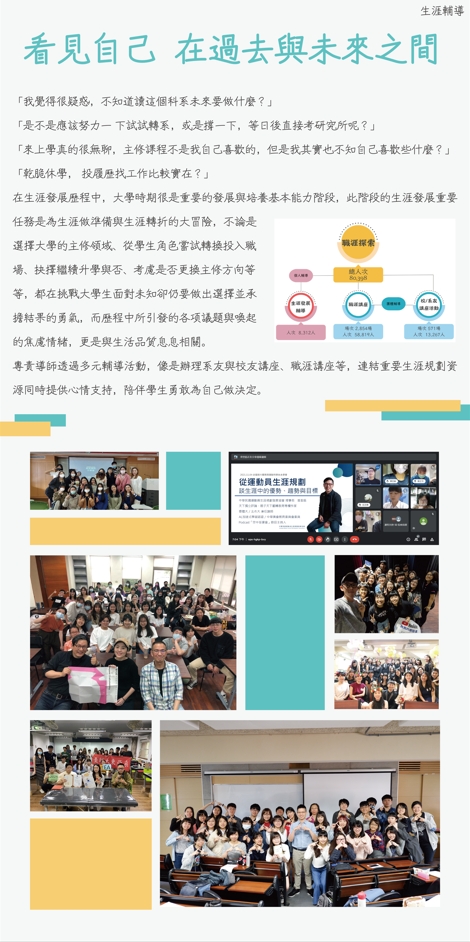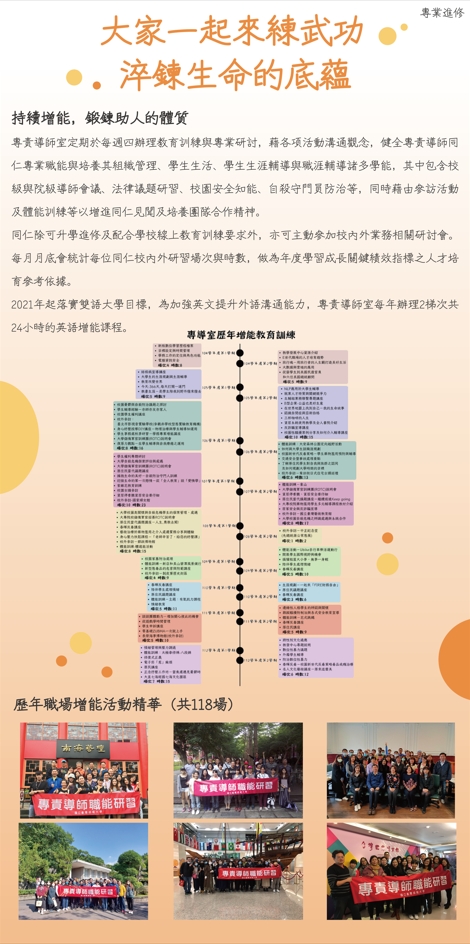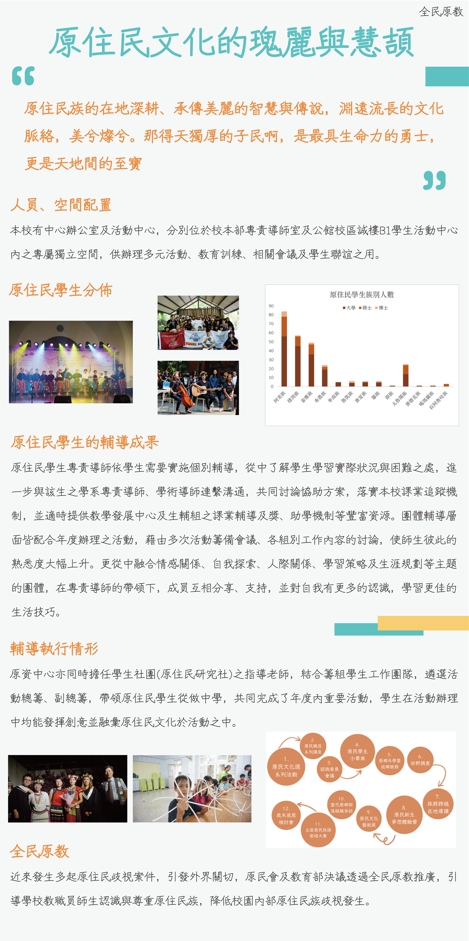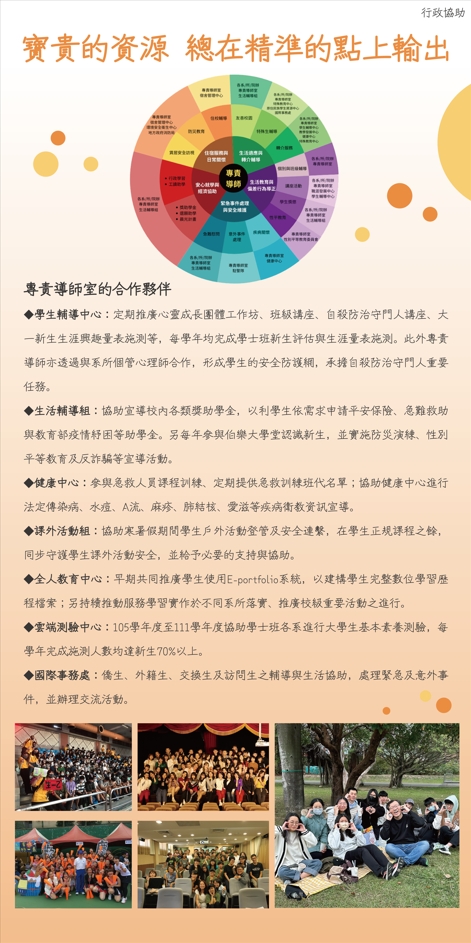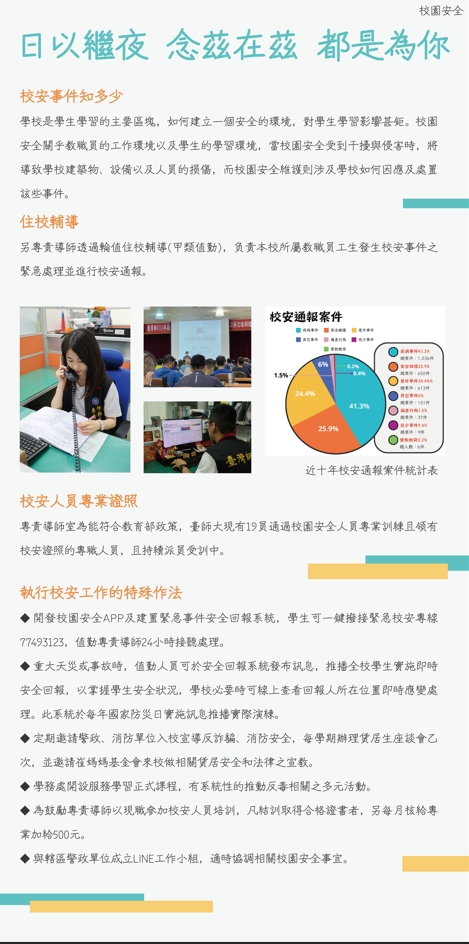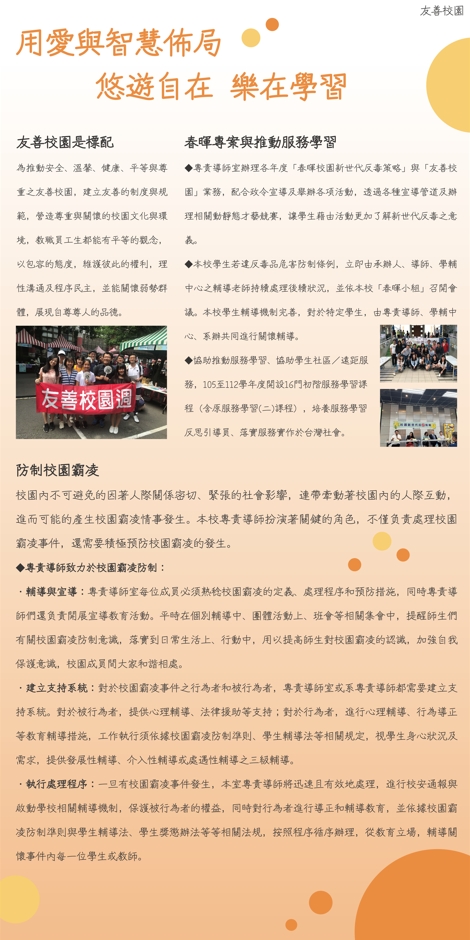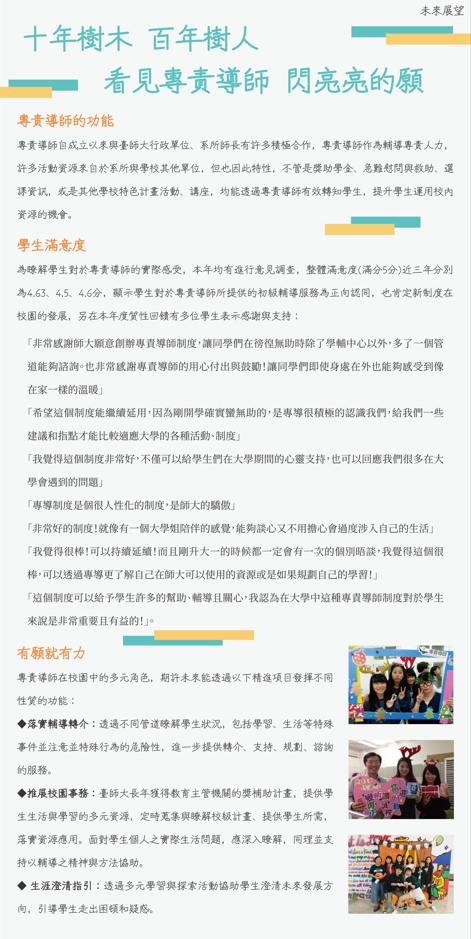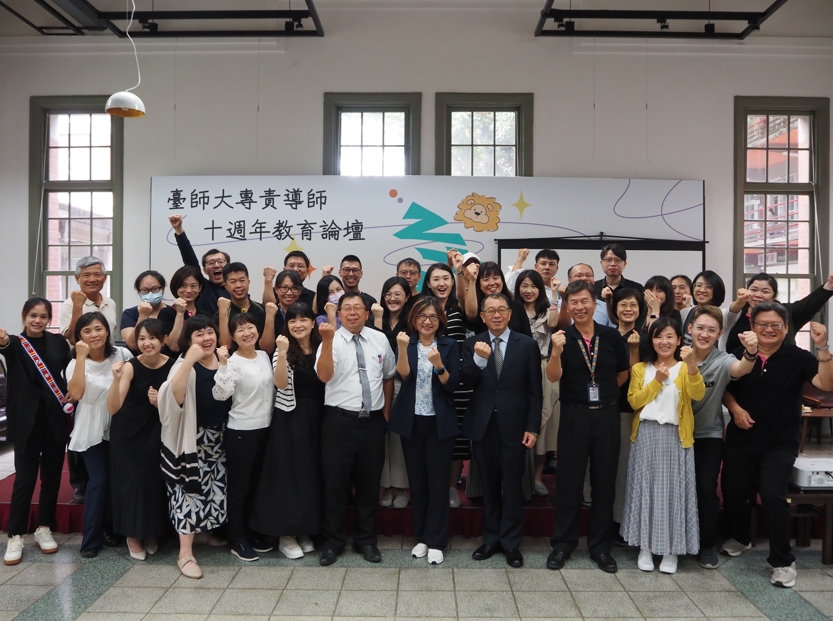A Decade of Service
It's been ten years since the implementation of the Student Adviser Office. Over the decade, Student Advisers have become a key role in school administration and a strong support for students.
The theme for this event is "The Power of Stability. The Hub of Growth – Hope. Uplift. Believe." This is not only a review of the past decade's work but also a vision for the future. At the 10th Anniversary Student Adviser Forum, we have invited Lin-Hui Wu (Director of Department of Student Affairs and Special Education), Chang-Yu Yang (President of Tatung Institute of Commerce and Technology), Professor Shao-Hsi Chang, and Mei-Chun Lin (Vice President for Student Affairs) to reflect on the current and future role of Student Advisers in student care. We hope to further build consensus, spark innovation, and collectively explore how to further enhance the impact of the Student Adviser’s role. We hope that in the next ten years, Student Advisers will continue to be a warm presence on campus.
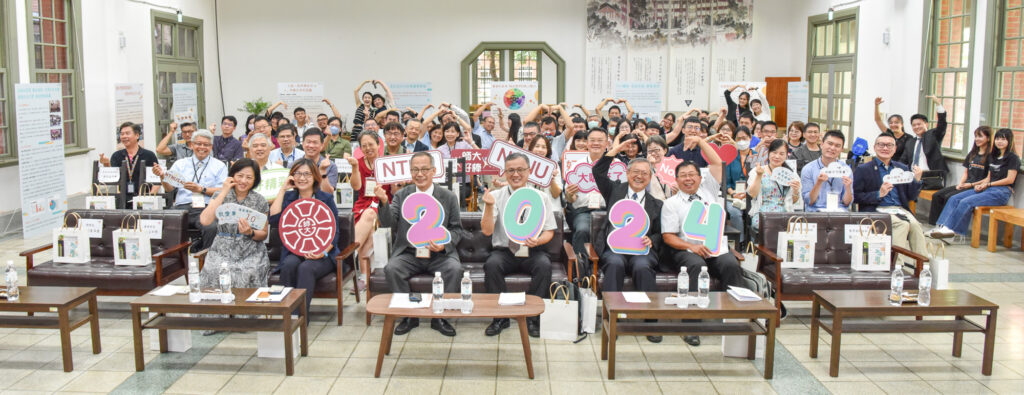
Panel Discussion I: The Crucial Collaboration between University Administration and Student Advising
Opening Remarks by Mei-Chun Lin, Vice President for Student Affairs
In a university setting, school administration and student advising are two essential pillars whose collaboration can greatly enhance administrative efficiency and facilitate a student-centered approach.
Administration plays a leading role in the operation of the university, requiring strategic planning of various resources. As global attention increasingly focuses on educational accountability, universities must take responsibility for the quality of education they provide. Demonstrating institutional effectiveness is key to sustaining long-term development and staying competitive in an increasingly globalized academic landscape.
Currently, Taiwanese universities face multiple challenges, including declining birth rates, tighter education budgets, and growing international competition. In this context, student advisers serve as a vital source of stability and support—for both students and the institution.

Sharing Session by Chang-Yu Yang, President of Tatung Institute of Commerce and Technology
1. The Responsibility of Student Advising Work in Universities
All instructors, advisers, and professional counselors in universities share the responsibility for student care.
This includes offering guidance courses or activities, and implementing a tertiary prevention system for student care.
It is essential that university personnels distinguish between guidance, counseling, and psychotherapy, as each represents a different level of intervention. Understanding these differences is critical for teamwork, making appropriate referrals, and ongoing professional development. The core objective of these efforts is to promote the holistic development of every student.
2. All for Students: For Every Student, and Every effort for the StudentsThe Student Guidance and Counseling Act that was issued in 2014 clearly states that schools must have dedicated offices or professionals for student counseling and student care. It also sets guidelines for how the student care system should be organized, what each role’s duties are, what resources to provide, and how different roles in student care should work together as a team. In recent years, universities have seen an increase in students needing professional help, and there has been a longer waitlist for professional counseling on campus. This shows how important it is to have a strong and proactive advising system that is more accessible to students to serve as developmental prevention in the tertiary prevention system. To truly help every student, it is crucial to have both the professional counseling role and the student adviser role. Without the more accessible role of student advisers, the referral process becomes more difficult to implement. It is also important to be aware that after we make a referral, we still need to stay involved in the process to strengthen student support.

Sharing Session by Lin-Hui Wu, Director of Department of Student Affairs and Special Education, Ministry of Education
1. The Importance of Collaboration between the Student Care System and School Administration in Universities
Recent policies and programs show that student care isn’t just about interaction between students and advisers/counselors. It’s also about utilizing resources well and designing systems that help students grow and feel connected to their university.
When professional counselors work with students, they should have administration as their support system. By working together, the university can bring more useful resources to students and make advising/counseling more effective.
2. Challenges and Accomplishments of Student Advising Work in Universities
In 2022, the Ministry of Education’s Department of Student Affairs and Special Education launched a project to promote mental health on campus (University Mental Health Promotion Program). It provided funding for universities to offer courses and events to promote mental wellness—ranging from mental health related courses to activities that help students de-stress and improve their well-being.
There’s also a need to rethink how universities name and designate student care roles and offices. This helps redirect different services to specific populations and in turn creates a professional collaboration of various student care roles. Our hope is to create new experiences and break away from previous stereotypes about getting professional help.
Today, there are challenges in how various student care roles are defined and organized within universities. Universities should set short-term and long-term goals to build strong support systems that promote student mental health in ways specific to each university.
3. Building a collaborative system is key to strengthening the tertiary prevention model in universities
According to the The Student Guidance and Counseling Act, student care is everyone’s responsibility—not just the job of professional counselors or a single office. The tertiary prevention model includes three-tiered implementation of mental health prevention and intervention–Developmental (preventive) counseling, Intervention (in response to issues), Treatment (ongoing support). Especially in developmental prevention counseling, it requires the active involvement of the whole university.
Through the student counseling committees discussions, we hope to build a system where everyone can work together. A good example of the tertiary prevention model in action is seen in National Taiwan Normal University Regulations for Comprehensive Student Guidance and Counseling announced in 2019. It emphasized that developmental counseling and prevention is a shared responsibility.
The regulations also give guidelines on how student care professionals should work together for more complicated intervention, treatment needs, or ongoing support. Each university can review how they handle crisis situations to improve their tertiary prevention system.
Since universities have limited resources but are facing growing demands, it's important to create student care and counseling models that both meet student needs and highlight each school’s strengths. That is a direction worth aiming for.
Panel Discussion II: The Origin, Development, and Progress of Student Advisers
Opening Remarks by Zong-Zhi Chen, Division Chief of Student Affairs Division, Department of Student Affairs and Special Education, Ministry of Education:
Society is constantly changing, and education must evolve accordingly, requiring systemic transformation. The role of the Student Adviser plays a crucial part in school operations and student learning outcomes. Student Advisers are responsible for guiding students to actively participate in activities and leading them to engage in social initiatives, thereby amplifying the impact of education and contributing to social progress. When students face setbacks or failures, Student Advisers can share their own experiences to encourage perseverance and resilience, providing guidance in students' lives.
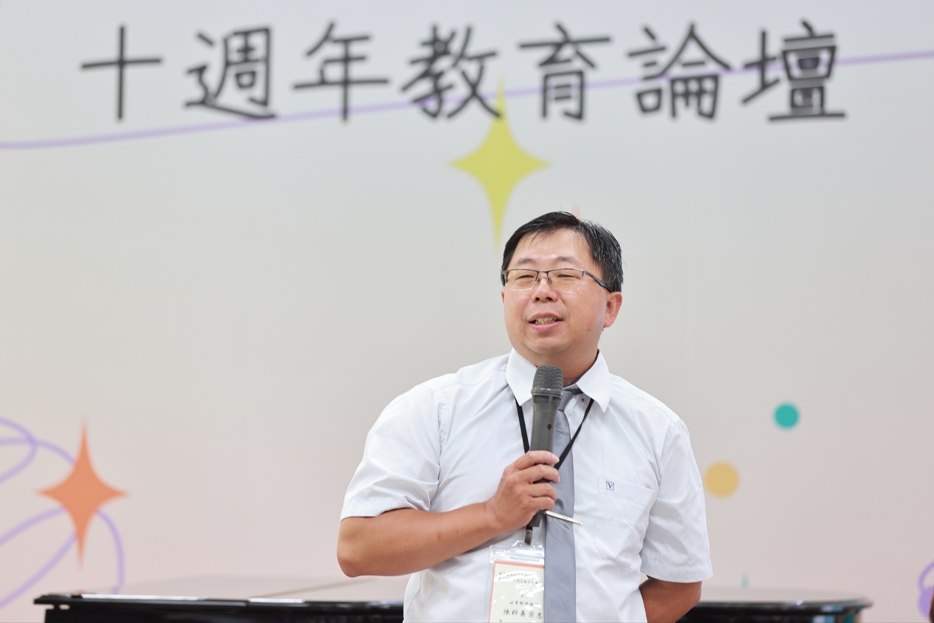

Sharing Session by Professor Shao-Hsi Chang
1. Preliminary Work for Implementing the Student Adviser System at NTNU
To promote the professional development of student affairs, National Taiwan Normal University (NTNU) has actively reformed and innovated its student care system in recent years. Under the outstanding leadership of former President Chang and with the support of faculty members, NTNU officially launched the Student Adviser System in 2014. This adviser system is student-centered and founded on the mission of student support and guidance, aiming to provide comprehensive support and counseling through the principles of "dedicated personnel, defined responsibilities, and professional student care."
Key principles for advising students include:
Say "yes" more often and "no" less; if necessary, soften a "no" with a "but."
Use "we" instead of "you" or "I" to promote inclusiveness.
Offer encouragement and praise generously, as this can yield unexpected positive results.
When handling issues, address the emotions first prior to solving problems.
Under this advising system, professors continue to serve as Academic Advisors, while the additional role of Student Advisers are added to provide early intervention for at-risk students, maintain communication with family, and gain understanding of the student's background and needs for assistance.
Additionally, NTNU has added Indigenous Student Advisers to support the specific cultural and educational needs of Indigenous students.
Through clear role delineation and teamwork, NTNU aims to greatly enhance the quality of student care.
2. Challenges During the Initial Stages of NTNU’s Student Adviser System
“There are no secrets to education—it is simply showing love and mentoring. Administration requires patience. Being a Student Adviser is ultimately about being there. Companionship is a steady and strong support that helps each life bloom.”
“Although changes can be painful, by shifting our mindset and learning to embrace it, we open the door to rich results and feedback.”
Under the traditional single-advisor system, professors were burdened with taking care of student issues on top of teaching and research duties. With the introduction of a dedicated role, a Student Adviser for each department now takes care of college life advising and special incidents, allowing Academic Advisors to continue offering students support and advice in line with their professional expertise.
As cooperation between the two types of advisors strengthens, students benefit from a stronger support system and open channels of communication with both the department and the university as a whole. Even after graduation, students can remain connected to their alma mater through their advisors, extending the impact of the university’s guidance and support services.
Sharing Session by Mei-Chun Lin, Vice President for Student Affairs
1. The Effectiveness of NTNU’s Student Adviser System
NTNU has conducted annual surveys of both the needs and effectiveness of the Student Adviser role since its initial implementation and every year after the second year. The system’s success is largely built on the dedication and hard work of each Student Adviser. According to survey feedback, student satisfaction consistently scores above 4 out of 5, indicating a high level of effectiveness. In terms of student care capacity, NTNU’s performance ranks among the best in the country.
Surveys show that the success of this system depends not only on the individual qualities of the Student Advisers but also heavily on institutional support. Given the increasing complexity of students' mental health needs, the high frequency of interaction with Student Advisers has had a significantly positive impact on students' experiences. To enhance this effect, the university is encouraged to proactively provide:
administrative support to help Student Advisers better understand their roles and responsibilities,
funding for class and group activities,
and access to professional consultation services.
Moreover, Student Advisers should tailor their support based on the diverse backgrounds and needs of students from various disciplines, helping them build interpersonal connections and enrich their campus life.
As the saying goes, “Every step leaves a trace.” Never underestimate the power of small actions. Treat students with the same care you would offer your own family—you never know when a student you once mentored might give back in significant ways in your own life one day.
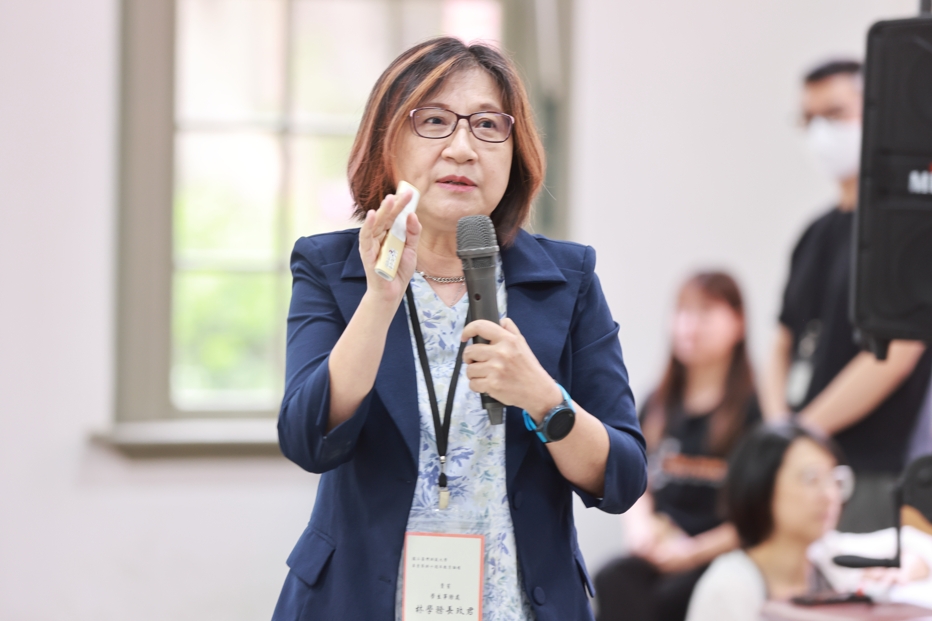
2. The Impact of Student Advisers on University Administration
Student safety is the foundation of our work in student affairs, and at NTNU, Student Advisers play a vital behind-the-scenes role in maintaining campus security and student well-being. They are on call on campus around the clock, offering emergency assistance and reducing the potential impact of at-risk situations.
One of the most distinctive annual events organized by Student Advisers is the "End-of-the-year All Pass Event." Held before final exams each year, this event features different themes each year to offer stress relief and encouragement for students during Finals week.
To better understand students’ thoughts on Student Advisers, satisfaction surveys are conducted annually. For example, in the 2023–2024 academic year (n = 2,384), the highest-rated item (on a 5-point scale) was:
“The Student Adviser’s participation in group activities (such as class events, student activities, advisor-student gatherings, sports, or intercollegiate events)” – average score: 4.61
Followed closely by:
“The Student Adviser’s assistance with administrative matters (e.g., emergency aid, scholarships, housing visits, pandemic education, course information, etc.)” – average score: 4.57
Overall student satisfaction over the past three years has remained consistently high at 4.63, 4.5, and 4.6, respectively. These results reflect strong positive recognition of the support Student Advisers provided. In addition to quantitative data, many students also offered appreciative comments in this year's qualitative feedback.
As the American Psychological Association emphasized during its 1972 conference, “Counseling evolves in response to societal needs.” The development of higher education student care has been shaped by a series of social changes and major events. Today, universities face the collective challenge of understanding the complex pressures students experience in a rapidly changing world. It is essential that those working in student care continue to adapt, respond to social and institutional shifts, and meet student needs with vision and commitment.

NTNU Campus Reports:https://pr.ntnu.edu.tw/ntnunews/index.php?mode=data&id=22707https://pr.ntnu.edu.tw/ntnunews/index.php?mode=data&id=22707
